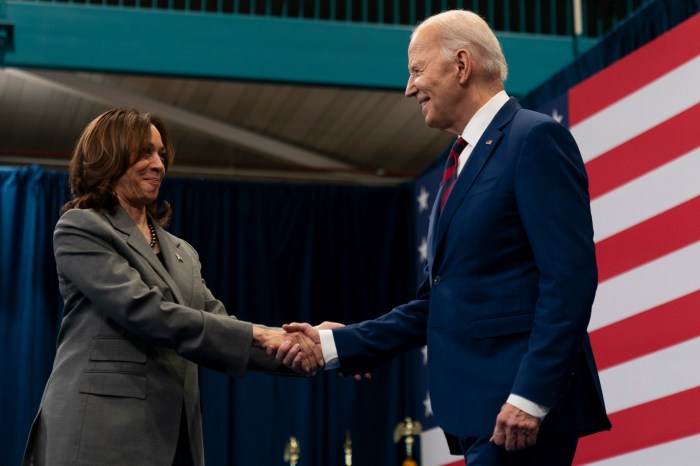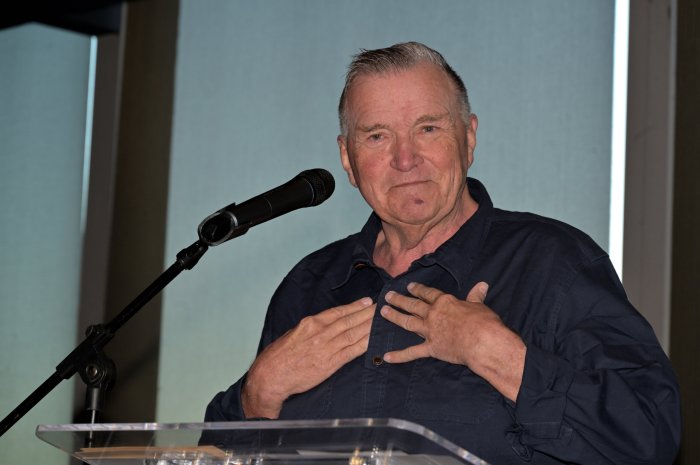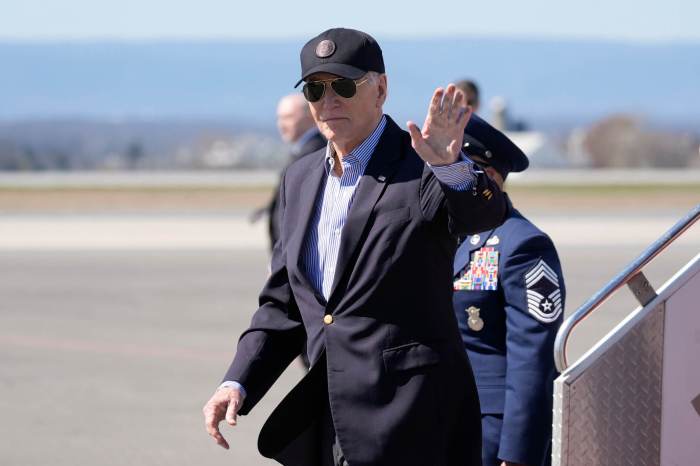BY PAUL SCHINDLER | Two nights ahead of its annual spring dinner in Rochester on May 22, most New Yorkers attuned to the doings of the Empire State Pride Agenda, the state’s LGBT lobby, took it for granted that Brian Ellner, a Dartmouth College and Harvard Law School graduate who is a top aide to city schools Chancellor Joel Klein, was poised to become the group’s new executive director.
The news surfaced in a big way nearly a week before, in a May 14 City Room blog posting at the New York Times. The story was sourced only to an unnamed person “with direct knowledge of the board’s plans,” but nobody came forward to seriously question that the search committee of ESPA’s board of directors intended to put his appointment up to a vote early Saturday in Rochester. Whether, in fact, Ellner’s appointment was fully settled on by the ESPA board members carrying out the search when the Times ran its story is a matter of disagreement among Gay City News’ sources.
Seven days that unraveled the appointment of a new ESPA leader
The position had been vacant since Alan Van Capelle departed the organization after seven years in February to join the staff of the city’s new comptroller, John Liu, and the advocacy group had little more than a month to try to advance a transgender civil rights bill and a school anti-bullying bill through the State Senate prior to its adjournment. In addition, Senate primaries in September and the November general election, which will decide the viability of making a second stab at winning final approval of marriage equality, were right around the corner.
Board co-chair Frank Selvaggi could well have been seen as simply deferring to his colleagues when he wrote on the morning of May 21, in response to a Gay City News query, “The search process hasn’t yet concluded. When we have an Executive Director, I will be more than glad to talk to you about that person.”
In fact, the search process had not been concluded definitively. Or perhaps, more accurately, it broke wide open again that day. Shortly after 4:30 that afternoon, Selvaggi reached out to Gay City News by phone with the extraordinary news that “Brian Ellner has withdrawn his candidacy.” The search continued, he said, an effort that almost exactly 24 hours later yielded a press release announcing the appointment of Ross Levi, the group’s director of public policy and education.
Three days later, after an untold number of phone calls and emails among people not in the know trying to figure out what happened to the Ellner appointment, Selvaggi would say only, “Brian withdrew for personal reasons.”
An explanation nobody is buying.
Ellner’s only comment to Gay City News was, “What I was focused on and remain focused on is winning equality,” adding that it was critical that a wide range of advocacy groups — inside players, such as ESPA, the Human Rights Campaign, and Freedom to Marry, and more grassroots-focused efforts, such as Freedom to Marry and GetEQUAL — have “success.”
During the seven days that transpired between the Times story and Ellner’s withdrawal, during which the Pride Agenda said nothing publicly about him, most of the chatter about the supposed frontrunner originated from his detractors, a number of whom hit the Internet in furious opposition, questioning both the level of experience he would bring to the job and what they characterized as the Democrat’s political opportunism for aligning himself with Mayor Michael R. Bloomberg.
For most of that week, no affirmative case for Ellner’s hiring was made by anyone, and, without a contract in hand, not surprisingly he did not speak publicly. Only toward the end of the week did some Ellner allies begin to emerge vocally — and since the appointment fell apart, others have stepped up as well to defend him.
In the meanwhile, the campaign against him gained considerable traction in the blogsophere. “People’s ire at Ellner isn’t so much that he supported and worked hard for Republican Bloomberg in 2005 and 2009, it is the fact that he did so after blasting Bloomberg throughout his losing primary race for borough president,” longtime gay activist Allen Roskoff wrote on the AKA William blog, in a post that kicked off the opposition drive. “Ellner wore ‘Dump Bloomberg’ buttons and said any of the Democratic candidates for mayor were better than Bloomberg.”
Ellner ran in a nine-person 2005 Democratic primary race for borough president, during which he was harshly critical of the mayor for his decision earlier that year to appeal a Manhattan district court ruling in favor of marriage equality. He also questioned the progressive bona fides of the other LGBT candidate, then-City Councilwoman Margarita Lopez, for being a “Bloomberg lover,” according to another detractor, gay Democratic activist Jon Winkleman.
Less than a month after losing the primary, Ellner issued a statement saying, “Mayor Bloomberg has earned a second term. He has an outstanding record on fighting for all New Yorkers.” He appeared on numerous occasions with Bloomberg during the final stretch of the mayor’s reelection campaign and was named to the schools job early in 2006.
Roskoff, citing a 2009 Ellner Facebook entry that he said showed favoritism for the Senate Republicans during their attempted coup last summer, also questioned whether the prospective ESPA leader could work effectively with the Democratic Senate leadership whom the community is pressing and counting on to deliver key victories.
When Natasha Dillon, a member of the grassroots group Queer Rising, circulated a scathing critique of Ellner’s appointment on May 19, Ellner phoned her in response, as did Joe Tarver, ESPA’s acting executive director — the only known instance of outreach to non-ESPA critics of the appointment. Tarver, Dillon said, argued that Ellner’s ties to the mayor would be helpful in courting Senate Republicans in Albany.
Nearly everyone who spoke to Gay City News — both advocates and foes of Ellner — cited the adamant opposition to him from board member Stuart Appelbaum, president of the Retail, Wholesale and Department Store Union, one of the city’s most progressive labor leaders and a tough critic of Bloomberg. Appelbaum declined comment to Gay City News.
How — and, indeed, whether — outside and inside pressure on the board forced the abandonment of the Ellner pick remains unclear, though numerous and contradictory theories were posited by sources who spoke to Gay City News. Several critics, off the record and on blog posts, asserted that other vetting issues emerged regarding Ellner at the eleventh hour, but no specific confirmable information has become public.
What is clear is that the search committee, led by co-chairs Selvaggi and Mitchell W. Karsch, was made up of a small number among the full board of more than two dozen. Whenever the tipping point about Ellner was reached — and by all accounts, it came on May 21, one day ahead of the Rochester dinner — the number of board members who “owned” the choice was limited. What began as an effort to concentrate power on the board apparently came to be seen as a risky decision forged by just a handful of board members. Support for Ellner collapsed among those who had been his earliest boosters.
Outside ESPA, Ellner’s allies were slow to surface in advance of his demise.
On May 20, Peter Yacobellis, a gay activist involved in Democratic politics, circulated a endorsement of Ellner that sought to diffuse what he characterized as divisiveness in the community, saying, “I’ve known Brian, professionally, for six years and have always known him to be very progressive.”
Richard Socarides, an attorney who served as LGBT liaison to President Bill Clinton and was a Bloomberg supporter last year, was also aggressive in advocating for Ellner, dismissing the Facebook issue as “ridiculous,” and saying that that the political grudge against Ellner for his embrace of Bloomberg obscures “a long record of being a leader in the LGBT community.” He cited “extensive” pro bono work Ellner did for Freedom to Marry, a nationwide advocacy group, his years on the board of the Hetrick-Martin Institute, which serves LGBTQ youth and runs the Harvey Milk High School, and his efforts in shaping the city Department of Education’s Respect for All anti-bullying program.
At least three elected officials — Senator Kirsten Gillibrand, out gay State Senator Thomas K. Duane, and out lesbian City Council Speaker Christine Quinn — were prepared to offer their praise of Ellner at the anticipated moment of his appointment. Responses from Duane and Quinn to Gay City News’ request for comment on May 21, however, point up the way that Ellner’s candidacy was in free-fall that day.
Just one hour before ESPA announced his withdrawal, Duane said, “I have worked very well with Brian Ellner… He is very articulate and he is a proven fundraiser. I think this is a very good match.” The senator, who clearly believed the appointment remained on track, dismissed charges of opportunism against Ellner, saying, “He was an asset to the community in the Bloomberg administration. It is always hard to be on the inside when you are pushing for change from the outside, but he bridged that very well.”
Four hours earlier, Quinn released a written statement in support of Ellner to Gay City News, but a spokesperson quickly called to pull back the email, saying it was the “wrong” statement. The speaker was apparently given a heads up by noon that Duane had not received almost four hours later — a fact that will do nothing to reduce the strains between the senator and ESPA that simmered just barely under the surface late last year during the unsuccessful marriage equality vote.
Charles O’Byrne, a former top aide to Governor David Paterson who was a major champion of Ellner’s candidacy, was unambiguous in his pique over the results of EPSA’s search process. “Brian Ellner is an extremely talented, conscientious, and effective advocate for our community,” he told Gay City News on May 25. “What happened to him in this process is both a disappointment and a real loss for all of us.”
Other community leaders outside the battle swirling around ESPA last week also offered praise for Ellner, even as they were careful to acknowledge the strength Levi brings to the job.
Longtime gay activist David Mixner, noting that Ellner had helped him organizer the first New York fundraiser for last year’s Nation Equality March in Washington and provided assistance in lining up potential legal assistance for LGBT activists planning civil disobedience more recently, said, “I think Brian has done a lot of good work in the community. He’s earned his stripes. He deserved to be treated better.”
Mixner added, “I think Ross Levi is a great man. We will bring a new intellectual capacity to the position.”
“What’s important at this point is that the Pride Agenda rally around a strong and capable choice in Ross Levi,” Dick Dadey, ESPA’s founding executive director who now heads up the good government group Citizens Union, told Gay City News. Then, suggesting that the Pride Agenda would have done well to keep better control of the public narrative about its search process, he added, “The level of public attention put on Brian’s candidacy undermined his chances if he, in fact, were the front runner. Without taking anything away from Ross, Brian brought to the table a set of adroit political skills that would have served the Pride Agenda well. I found the charges against Brian as being more about Bloomberg than about him, which is unfortunate.”

































